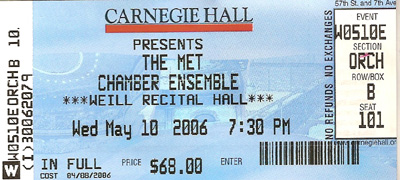In which we have a look at this week's
New York Times Book Review.
Fiction & Poetry
There are two books of poetry this week, covered one review
largely, it seems, because the poets in question hail from the Atlantic Isles.
Neither is English but both live in London now, and Stephen Burt's review is so
enthusiastic that I have already ordered one of the books online, Nick Laird's
To A Fault. I was not tempted to read the first novel of this former
lawyer and current Mr Zadie Smith, but the lines of verse that Mr Burt quotes
are irresistible. Why? Because they're in English.
As any Frenchman will tell you, we don't speak English here. We
speak American. As a demotic dialect, it is a midden of low-class English,
sparked only by the King James Bible, and the flotsam of countless immigrant
expressions. It is a patois that always tends to the vague and noncommittal -
except where results really matter, in which case it falls back on sports talk.
No one wrote readable American until Fitzgerald and Hemingway, and their
approach was to succeed by saying as little as possible. Jonathan Franzen is one
of the first writers, I believe, to speak in a naturally eloquent American. Our
poetry, in contrast, is still too affected, too unlike our ordinary
carelessness, to lean on. Beyond Wallace Stevens's serious playfulness and John
Ashbery's commitment to inconsequence there is little to recommend American
verse.
In the Atlantic Isles, English is inflected only by some Celtic
remnants that were assimilated long ago. British xenophobia may be lamentable,
but it has kept the language strong. Am I pleading for racial purity here?
Hardly. The reverse, if anything. A strong sense of language allows wildly
diverse human beings to make sense to one another. American, as a language, is a
device for the upkeep of ghettos.
There, I feel better now. The other book, Robin Robertson's
Swithering, also sounds good, but not for me, at least if Mr Burt is right:
Their requirements - brevity, clarity, story - permit approaches
as different as Robin Robertson's and Nick Laird's: the first stoic,
generalizing and compellingly terse; the second loquacious, voluble, able to
revel in details.
Mr Burt feels at one
point obliged to provide a definition of the word "counterpane." It's quite true
that this word is not an item of standard English. But I have always known what
it means, because I grew up on Robert Louis Stevenson's A Child's Garden of
Verses. So should your little ones.
The cover story this week is Philip Roth's
Everyman,
enthusiastically reviewed (wow!) by Nadine Gordimer. Like every review of this
book that I've come across, this one sings in praise of Mr Roth's themes, and in
so doing confirms my real dislike of MEN who indulge their DESIRES for SEX until
the moment of their DEATH. A few years ago, I read an extract from Sabbath's
Funeral in The New Yorker. Quite aside from the genuinely disgusting
climax - or perhaps not - was the eloquently adolescent prose. Mr Roth is simply
a more-gifted-than-most embodiment of the failure to recognize that adolescence
is to be grown out of.
On the page facing the bulk of Ms Gordimer's essay is Walter
Kirn's two-timing review of A M Homes's latest offering,
This Book Will Save
Your Life. For acres of print, Mr Kirn appears to laud Ms Homes. It's only
in the antepenultimate paragraph that he lowers the boom. Ms Homes, he writes,
seems flummoxed by the larger task of leveraging Richard's
adventures in recovery into a panoramic Los Angeles black comedy. Her people
are made of dough that just won't rise. Her miniature editorials on class
and status belong in a 1960s Newsweek column. She scourges Hollywood
in all the ways that make it tingle with guilty ecstasy.
If Walter Kirn keep this up, I'm going to open a separate section, just for his
bracing reviews, of which this is the fifth this year.
Christopher Dickey reviews Neil McFarquhar's
The Sand Café. Both men are journalists who
have covered the Near-Asian beat, and Mr Dickey is largely sympathetic about
what he nevertheless makes clear is a thin novelization of actual events -
namely, the hurry-up-and-wait of Operation Desert Storm. Nor does he let us
forget that Evelyn Waugh nailed this subgenre in 1938's Scoop. Jacob
Heilbrunn is rather less forgiving about Alex Berenson's
The Faithful Spy, an "exciting, if
flawed, tale." He particularly faults Mr Berneson for "chest-thumping" in this
novel about a rogue CIA agent who's single-handedly out to defeat al-Qaida, and,
even worse, for appearing to believe that torture is effective.
Thomas Beller reviews two collections of shorter fiction from
abroad. Cristina Henriquez, author of Come Together, Fall Apart, may be
an American, but she spent chunks of childhood in her father's native Panama. Mr
Beller, although he confesses to reading the books under review in order to
learn things about faraway places, nevertheless writes intelligently about the
books themselves as texts. Of Ms Henriquez, he observes that
Her sentences have a muted calm that suggests, paradoxically,
something quite remote from inner peace: it's the state you will yourself
into so you can hold on to the many disparate threads of life.
Of The Nimrod Flipout, Etgar Keret's portfolio of thirty prose snapshots
(translated from the Hebrew by Miriam Schlesinger and Sondra Silverston), Mr
Beller writes,
By the end, he's accumulated a stock of reflections and insights
that are breathtakingly banal.
But the
review does quite interestingly point out that Mr Keret's Israelis have learned
how to muck up their own lives with self-inflicted disasters as a means of
liberation from the dread of terrorist attacks.
Verlyn Klinkenborg is an engaged New York Times writer
with whom I almost always disagree about something, and I have to say that I'm
scratching my head over his decision to narrate
Timothy: Or, Notes of an Abject Reptile from the point of view of
an eighteenth-century tortoise. Reviewer David Gessner tries to make sense of
the gambit without success, but he does grasp that Mr Klinkenborg seems to
believe that only a non-human can see human beings in perspective, as creatures
in the natural order of things - something the very fact of his novel belies.
Nonfiction
Lord, what a lot of books to deal with on such a beautiful day
in May.
The first book reviewed within the pages of this week's
Review is a must-have: Helen Castor's Blood and
Roses: One Family's Struggle and Triumph During England's Tumultuous Wars of the
Roses. For a long stretch of my teens, I thought that the War of
the Roses was the coolest thing that had ever happened; it took a while to
realize that said wars were nothing more than a descent into gangland, but with
great clothes. The wonderful thing about the middle of the fifteenth century is
the profusion of characters and shifting allegiances; no matter how often I read
about the period, I always have to reminded who liked whom. The Paston Letters -
a trove of over a thousand missives discovered in the eighteenth century - are
better than Shakespeare at communicating the flavor of the times, and reading at
least a few of them in the original late Middle English - already much more open
to us than Chaucer - is something that every educated person ought to attempt.
Megan Marshall's enthusiastic review points out that Ms Castor, notwithstanding
Virginia Woolf's complaint that the letters are "mounds of insignificant and
often dismal dust," has discovered a very English story in the material: the
rise of a family from peasantry to prominence in a few generations, under cover
of civic unrest.
Paul Krugman's review of Knowledge and the Wealth of
Nations: A Story of Economic Discovery, by David Warsh, makes it clear that
this is a book that I'll have to read. I'm not sure that I understand what it's
about, not because the review is unclear but because I am thinking so hard at
the moment about Jane Jacobs's Cities and the Wealth of Nations, a very
different sort of book. Mr Krugman, who quibbles with a few details, waives the
nit-picking and hails Mr Warsh's command of "high intellectual drama." Another
important book seems to be The Accidental Empire: Israel and the Birth of the
Settlements: 1967-1977, by Gershom Gorenberg. According to Jonathan D
Tepperman's favorable review, Mr Gorenberg attributes the mess in Israel to
neither self-defense nor territorial theft, but rather to the policy of no
policy. While the Israeli government did nothing, "young zealots dreaming of a
biblical 'Greater Israel'" launched their settlements, which the government
eventually gave up closing.
The book works powerfully on two important levels: as a deeply
informative counterhistory and as a mournful reminder of what happens when a
democratic government acquiesces in the fact of its own militants. ...
Still, by showing the root of the problem - incompetence, not ideology -
Gorenberg points to the direction from which an answer may someday emerge.
Joseph Kahn's review of Gordon G Chang's
Nuclear Showdown:
North Korea Takes On the World suggests, in contrast, that this is a piece
of punditry pure and simple, in which "hyperbole and cliché overwhelm some
astute revelations."
Five American history books are reviewed this week, and two
French. David Gilmour, whose The Ruling Caste was nicely reviewed last
week, has a characteristically English view of the French Revolution, observing
that, as most of its objectives had been already been attained in England and
America, and without bloodshed. He faults David Andress for sympathizing,
bottom-line - with the revolutionaries, but calls his book,
The Terror: The
Merciless War for Freedom in Revolutionary France, "vivid and powerful." And
he strongly disagrees with Ruth Scurr, whose Fatal Purity: Robespierre and
the French Revolution.
In fact the Revolution was the fount and origin not of our world
but of the totalitarian era, an inspiration to future dictators who could
adopt Rousseau's theory of the General Will as an excuse to avoid democracy
and who could label their opponents counterrevolutionaries as an excuse to
murder them without trial.
[In the recent
issue of The London Review of Books, on the other hand, Hilary Mantel is
so wowed by Ms Scurr's biography of Robespierre that I senses a certain regret
that The Incorruptible is unavailable for dating.]
Louise Knight points out that Death in the Haymarket: A
Story of Chicago, the First Labor Movement and the Bombing That Divided Gilded
Age America, by James Green, is only the fourth book to have been written
about a shameful episode in United States history - what a surprise. Ms Knight
regrets Mr Green's book's lack of "strong narrative voice, backed up by a
disciplined willingness to winnow out the intriguing but extraneous from the
vitally relevant." Alan Wolfe reviews three books about the Founders' religious
faith, two favorably: The Faiths of the Founding Fathers, by David L Holmes, and
Realistic Visionary: A Portrait of George Washington,
by Peter R Henriques; and one not:
American Gospel: God, the Founding Fathers, and the Making of a Nation, by
Jon Meacham. Mr Wolfe agrees with Mr Holmes and Mr Henriques that the Founders
were not, on the whole, conventional Christians, but Deists at best. Considering
Washington's silence, Jefferson's cut-and-paste bible, Adams's Unitarianism, and
so on, this seems to be the right judgment. But of course it makes today's
evangelicals unhappy; they want to use the Founders' piety as a means of
hijacking the nation. Mr Wolfe does not linger over Mr Meacham's book and
concludes his review on a pessimistic note.
We often want to believe that history moves forward. When we
compare the role of religion in politics at our founding to its role today,
we just might conclude otherwise.
Ted Widmer faults The Defining Moment: FDR's Hundred Days and the Triumph of
Hope, by Jonathan Alter, for a few minor shortcomings, but notes that it
"has a refreshing buoyancy, not unlike its protagonist." Mr Widmer echoes Mr
Wolfe's gloom:
In fact, if there is an overarching frustration to the experience
of reading this book, it is that the panorama of hope and ingenuity that
Alter paints for us today seems a thing of the past.
Say what you will about the United States, thousands are still dying to get in -
literally. Sonia Nazario's Enrique's Journey
is the harrowing but magnificent account, according to review Sarah Wildman, of
one Honduran family's unhappy journey from one kind of poverty to another. "It's
adventure travel for masochists," writes Ms Wildman.
According to Scott Stossel, Daniel Gilbert's Stumbling on Happiness
jocularly advances the view that happiness is a delusion.
For instance, healthy people can be deluded into greater
happiness when granted the mere illusion of control over their environment;
the clinically depressed recognize the illusion for what it is. All in all,
it's yet more evidence that unhappy people have the more accurate view of
reality - and that learning how to kid ourselves may be a key to mental
health.
Mr Stossel notes Professor Gilbert's sense of humor but
otherwise writes a cheater: read the review and you won't have to read the book.
James Campbell very nearly loses patience with Roger Angel,
whose memoir, Let Me Finish, has just been published. Mr Angel, it seems,
is insufficiently traumatized by a childhood in which he was abandoned to his
father by his mother, Katharine White. He's simply too well-mannered.
It is hard for the reader of this likeable book to avoid seeing
the insistence [upon trustworthiness] as an appeal by a writer whose trust
in life's entitlements was broken early on, before he cared how privileged
he was.
Mr Campbell also complains, sort
of, that Mr Angell isn't as revealing about the "deeper recesses" of The New
Yorker, where Mr Angell has served under all five of the magazine's editors,
as he might be, because he "has to turn up for work on Monday morning."
Finally, there are seven books aimed at guys that will probably
annoy or bore all other readers. They are: Game of
Shadows: Barry Bonds, Balco and the Steroids Scandal That Rocked Professional
Sports, by Mark Fainaru-Wada and Lance Williams, and
Love Me, Hate Me: Barry Bonds and the Making of an
Antihero, by Jeff Pearlman, both reviewed more or less favorably
by Michael Sokolove; Clemente: The Passion and Grace
of Baseball's Last Hero, by David Maraniss, favorably reviewed by
George F Will (a guy with a gift for writing if there ever was one, but still a
guy); Crime Beat: A Decade of Covering Cops and
Killers, by Michael Connelly, given a moderate review by Charles
Taylor; A G-Man's Life: The FBI, Being "Deep
Throat," and the Struggle for Honor in Washington, by Mark Felt
and John O'Connor, unfavorably reviewed by John W Dean; and
Beautiful Madness: One Man's Journey Through Other
People's Gardens, by James Dodson, and
The $64 Tomato, by William Alexander, both reviewed by a much
more seasoned gardener, Constance Casey.
In the Essay, "How to Sell Books by Really Trying,"
humorist Henry Alford recounts his efforts to sell nineteen unappealing books to
passers-by in Greenwich Village.
In the end, my experience has afforded me a new vantage point on
literature. What makes Iago evil? I have no idea. But what makes someone by
Iago's guide to hot-waxing defunct sports cars? Preparation, Persistence.
Psychological pimping. I think I'll call them the three P's.
Now can I go outside and play?



